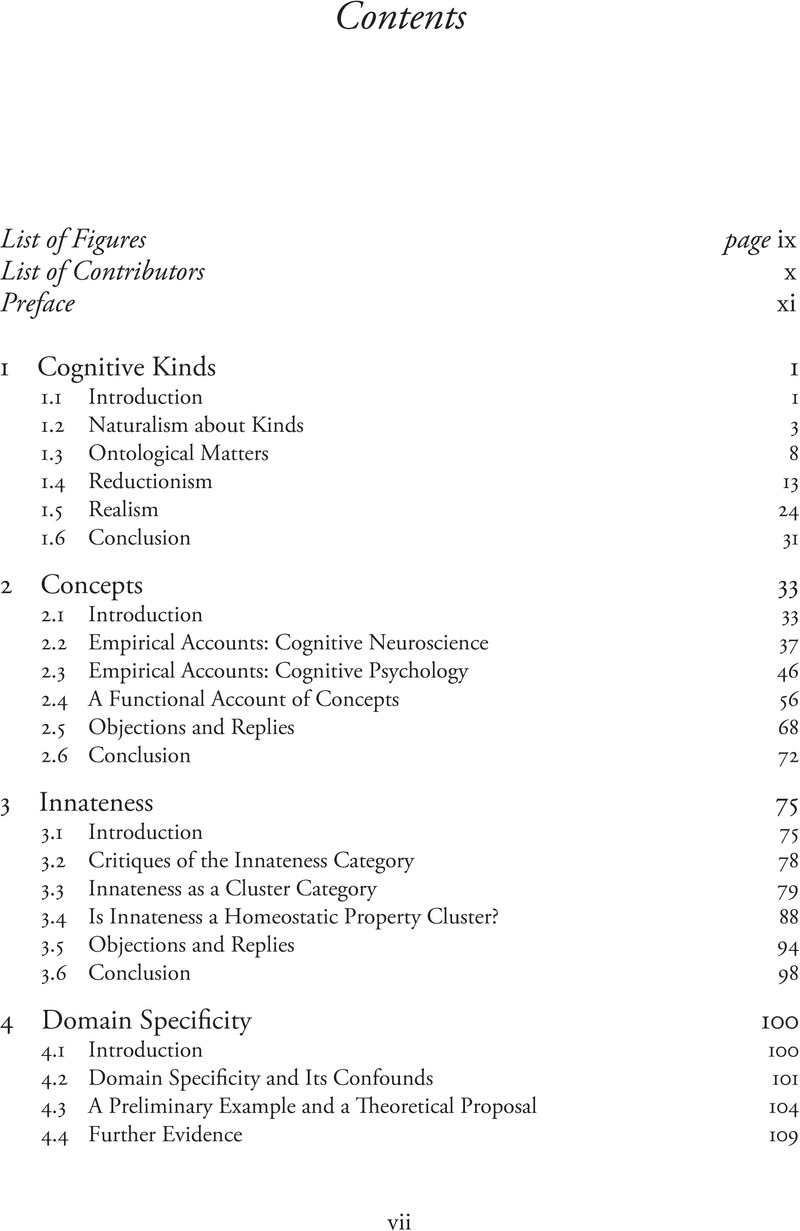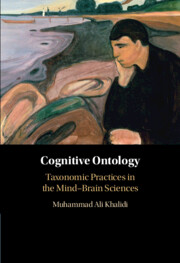Book contents
- Cognitive Ontology
- Cognitive Ontology
- Copyright page
- Dedication
- Contents
- Figures
- Contributors
- Preface
- Chapter 1 Cognitive Kinds
- Chapter 2 Concepts
- Chapter 3 Innateness
- Chapter 4 Domain Specificity
- Chapter 5 Episodic Memory
- Chapter 6 Language-Thought Processes
- Chapter 7 Cognitive Heuristics and Biases
- Chapter 8 Body Dysmorphic Disorder
- Chapter 9 Epilogue
- References
- Index
Contents
Published online by Cambridge University Press: 15 January 2023
- Cognitive Ontology
- Cognitive Ontology
- Copyright page
- Dedication
- Contents
- Figures
- Contributors
- Preface
- Chapter 1 Cognitive Kinds
- Chapter 2 Concepts
- Chapter 3 Innateness
- Chapter 4 Domain Specificity
- Chapter 5 Episodic Memory
- Chapter 6 Language-Thought Processes
- Chapter 7 Cognitive Heuristics and Biases
- Chapter 8 Body Dysmorphic Disorder
- Chapter 9 Epilogue
- References
- Index
Summary

Information
- Type
- Chapter
- Information
- Cognitive OntologyTaxonomic Practices in the Mind-Brain Sciences, pp. vii - viiiPublisher: Cambridge University PressPrint publication year: 2023
